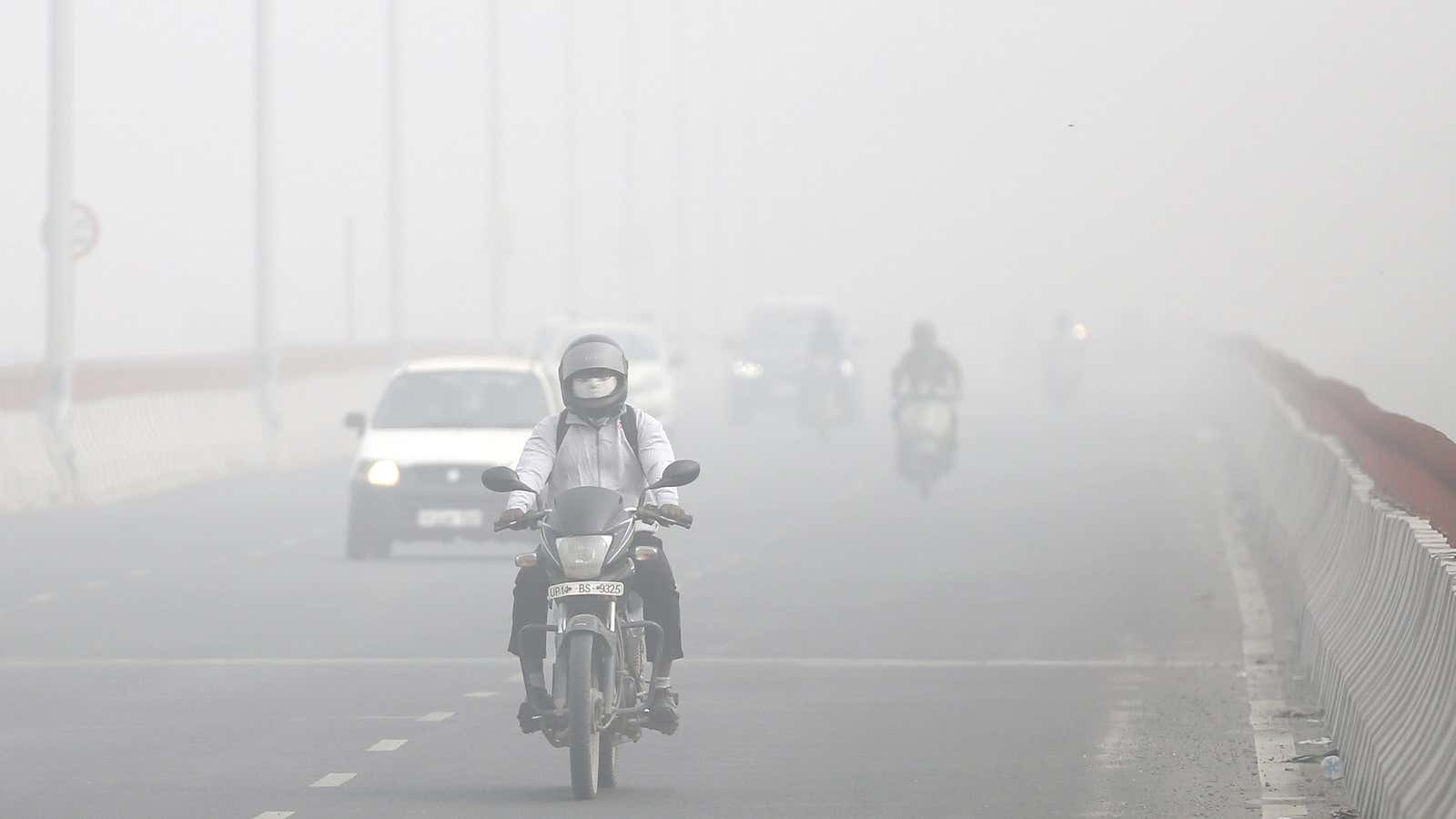In what has become a chronic condition for the city of 22 million, New Delhi is once again choking on extremely high levels of air pollution. In parts of the city, air quality index (AQI) readings have hit 999—the equivalent of smoking 45 cigarettes a day.
But 999 is the maximum reading on air monitors, which means actual levels are likely higher.
AQI is based on measurements of PM2.5, the tiny particulate matter pollution produced through combustion—it’s released by burning coal, running diesel engines, and burning crops in neighboring states, all major sources of pollution for the city. PM2.5 is small enough to slip deep into lungs, aggravating asthma and contributing to a range of health effects.
“I feel breathless even inside my car. I can’t keep the windows of my house open,” New Delhi businessman Nishank Dadu told the BBC. “Delhi has become a gas chamber and nobody seems to be doing anything to improve the situation.”
The dense smog is being blamed for car crashes, including a 24-car motorway pileup just outside the city, according to the Telegraph.
[protected-iframe id=”b44689c22df649e363728eb1de21aa6b-39587363-115385242″ info=”https://www.facebook.com/plugins/video.php?href=https%3A%2F%2Fwww.facebook.com%2FProudToBeAnIndian.in%2Fvideos%2F1928213567194147%2F&show_text=0&width=560″ width=”560″ height=”364″ frameborder=”0″ style=”border: none; overflow: hidden;” scrolling=”no”]
PM2.5 air pollution hits babies and the elderly hardest, and exposure in the womb has long been associated with an array of adverse birth outcomes like preterm birth and low birth weight.
But residents don’t just have PM2.5 to worry about. Other air pollution molecules, like the polycyclic aromatic hydrocarbons in diesel exhaust, are known to raise cancer risk, especially in people exposed to the stuff as a fetus. Other pollutants affect the heart; still others are neurotoxins. Air pollution also impairs immune development in utero, making it harder for those exposed to fight infection later in life.
Globally, chronic exposure to air pollution causes roughly 7 million people to die prematurely each year.
